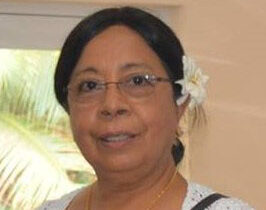Hand, foot and mouth disease detected in Raro
Friday 9 September 2022 | Written by Caleb Fotheringham | Published in Health, National

Director of Hospital Health Services, Dr Yin Yin May. 22090829
Hand, foot and mouth disease has been detected at primary medical care centres in Rarotonga over the last two weeks.
Director of Hospital Health Services, Dr Yin Yin May said the signs and symptoms of the disease presented were similar to chickenpox.
May said there were less than 10 isolated cases of the diseases detected and she could not comment if it was an outbreak.
She said hand, foot, and mouth disease (HFMD) is a common mild and short-lasting viral infection that most often affects young children.
“It is characterised by blisters on the hands, feet and in the mouth. The infection may rarely affect adults.
“HFMD most often infects children under the age of 10, and most are under 5 years of age (95 per cent). It can uncommonly affect adults and tends to be more severe in the elderly, immunocompromised, and pregnant women.
“The typical incubation period of HFMD is 3-5 days but has been known to range from, 2-7 days.”
The disease symptoms are lesions on the dorsal and palmar surfaces of the hands and feet. The progression is from flat pink patches to small, elongated greyish blisters. Within a week, these peel off leaving no scars. Small vesicles and ulcers also occur in and around the mouth, palate, and pharynx.
May said: “These are sometimes painful, so the child eats little, frets, and may complain of a sore throat or mouth sores.”
She said the diagnosis is normally made from the appearance of the blisters. It can also be confirmed through laboratory tests by a blood and skin biopsy.
“Public information will be sent out on public health measures are personal hygiene, to keep children at home if not well and to contact Primary care if help is needed prior to presenting to the Primary care,” May said.
May said there was no specific treatment for the disease.
However, she said the blisters should not be ruptured and be kept clean. People infected should also remain hydrated and antiseptic mouthwashes can help relieve pain.
There are no vaccines or specific antiviral medications available.












































